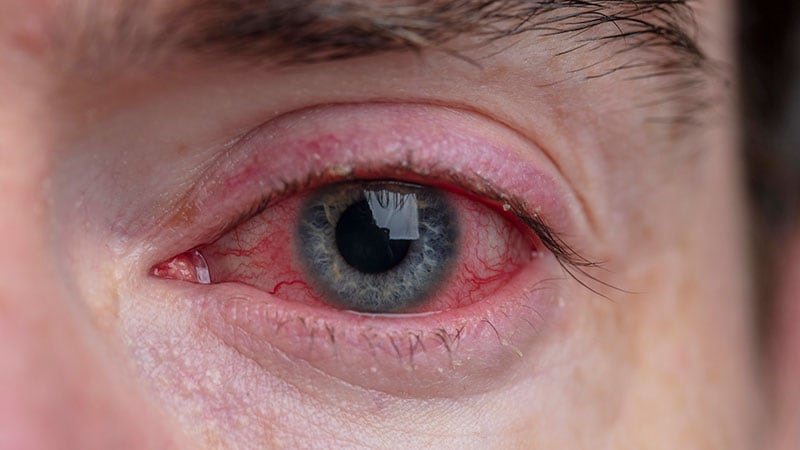Although ocular monkeypox is rare, it can be a condition that threatens a person’s sight, a Centers for Disease Control and Prevention (CDC) report says. The report details five people with monkeypox who developed eye complications from July through September of this year. Four people were hospitalized, and one experienced notable vision impairment.
The report was published today in the CDC’s Morbidity and Mortality Weekly Report (MMWR).
There have been over 27,000 monkeypox cases in the United States, and the number of new cases has steadily trended downward since early August. Most cases resolve within 3 weeks, but if the virus is introduced into the eye (eg. from touching the eye area), it can potentially cause compilations such as conjunctivitis, blepharitis, keratitis, and loss of vision. National US surveillance data suggest about 5% of patients with monkeypox have ocular symptoms, but there is no available data for the current outbreak.
The report detailed ocular monkeypox cases in four men and one woman. Two men had HIV and experienced delays in monkeypox treatment. Neither was taking antiretroviral therapy (ART) when they were evaluated, and both started ART. Common ocular symptoms included conjunctivitis, pain, and redness, and all patients were given tecovirimat (Tpoxx) and topical trifluridine (Viroptic) as treatment. One of the men with HIV experienced profound visual impairment in his left eye, with visual acuity measuring at 20/800. As of October 11, he was still hospitalized, and it is not known whether his vision will recover.
The report highlights the importance of prompt evaluation and treatment of monkeypox to prevent ocular complications. The authors advise that patients diagnosed with monkeypox should wash their hands regularly and avoid touching their eyes, including using contact lenses. To avoid delays in treatment, clinicians should consider beginning empiric monkeypox treatment while awaiting test results in suspected ocular cases or in individuals at higher risk of complications from the disease.
“Increased clinician awareness of ocular monkeypox and of approaches to prevention, diagnosis, and treatment might reduce associated morbidity,” the authors write.
MMWR Morb Mortal Wkly Rep. Published online October 17, 2022. Full text
For more news, follow Medscape on Facebook, Twitter, Instagram, YouTube, and LinkedIn
